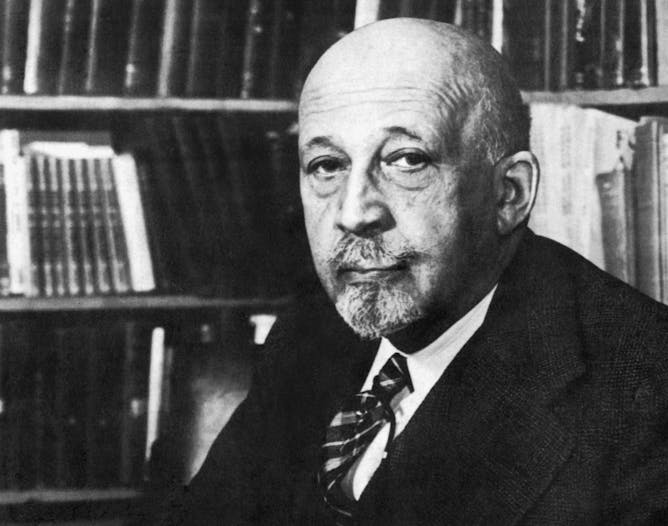|
|
|
|
As the nation’s preeminent scholar on race, W.E.B. Du Bois knew about criticism of the importance of Black history in America.
Despite those challenges, from his first book, “The Suppression of the African Slave-Trade,” published in 1896, through his 1935 magnum opus “Black Reconstruction in America,” Du Bois detailed the experiences of Black people with an an uncanny prescience of today’s debate over African American studies.
In fact, as Brandeis University historian Chad Williams writes, Du Bois spent a significant part of his career trying “to correct the distortion of history in regard to Negro enfranchisement.”
In an article published by a New York newspaper on Feb. 11, 1951, Du Bois explained the importance of why he did so. Hopefully, Du Bois wrote, the nation would become “conscious that this part of our citizenry were normal human beings who had served the nation credibly and were still being deprived of their credit by ignorant and prejudiced historians.”
Also today:
|

|
Howard Manly
Race + Equity Editor
|
|

Scholar-activist W.E.B. DuBois in 1946.
Underwood Archives/Getty Images
Chad Williams, Brandeis University
As the 20th century’s preeminent scholar-activist on race, W.E.B. Du Bois would not be surprised by modern-day attempts at whitewashing American history. He saw them in 1930s and 1940s.
|
Science + Technology
|
-
Deborah Fuller, University of Washington
Annual flu vaccines are in a constant race against a rapidly mutating virus that may one day cause the next pandemic. A one-time vaccine protecting against all variants could give humanity a leg up.
-
Mark Quigley, The University of Melbourne
When Monday’s earthquake struck, many poorly constructed buildings suffered a ‘pancake mode’ collapse.
-
Todd M. Freeberg, University of Tennessee
Scientists are learning that diversity has many perks – whether in multispecies groups of animals or human society.
|
|
Politics + Society
|
-
Tarah Williams, Allegheny College; Andrew Bloeser, Allegheny College; Brian Harward, Allegheny College
A large proportion of Americans is willing to support leaders who would violate democratic principles.
-
Ian T. Adams, University of South Carolina; Justin Nix, University of Nebraska Omaha; Scott M. Mourtgos, University of Utah
Police departments have faced recruitment and retention problems since the 2020 George Floyd protests. It has meant some agencies have had to lower standards to attract new officers.
-
Rebecca Janzen, University of South Carolina
Mexico’s crime epidemic continues to worsen, as poverty and inequality also grow in the country.
|
|
Environment + Energy
|
-
Tacey Hicks, Texas A&M University; Kathryn Shamberger, Texas A&M University
Climate change is making oceans more acidic globally. Now, scientists are finding that large storms can send pulses of acidic water into bays and estuaries, further stressing fish and shellfish.
-
Pengfei Zhang, Penn State
Atmospheric rivers can melt fragile new sea ice. When these storms arrive in waves, the sea ice doesn’t have a chance to recover.
|
|
Ethics + Religion
|
-
J. Eugene Clay, Arizona State University
The Ukrainian Greek Catholic Church has a history going back to the 16th century, when some Orthodox bishops and their followers agreed to become Catholic.
|
|
Health + Medicine
|
-
Tori Horn, University of Memphis
In the past, typical clients tended to be retirees living on fixed incomes who played slots and card games.
|
|
Economy + Business
|
-
Susan Appe, University at Albany, State University of New York
Indian American donors will have an opportunity to collectively fund improvements in education, health care and gender equality in India on March 2, 2023.
|
|
|
|
|
|
| |
| |
| |
| |
|
|
|
|
|
|
|